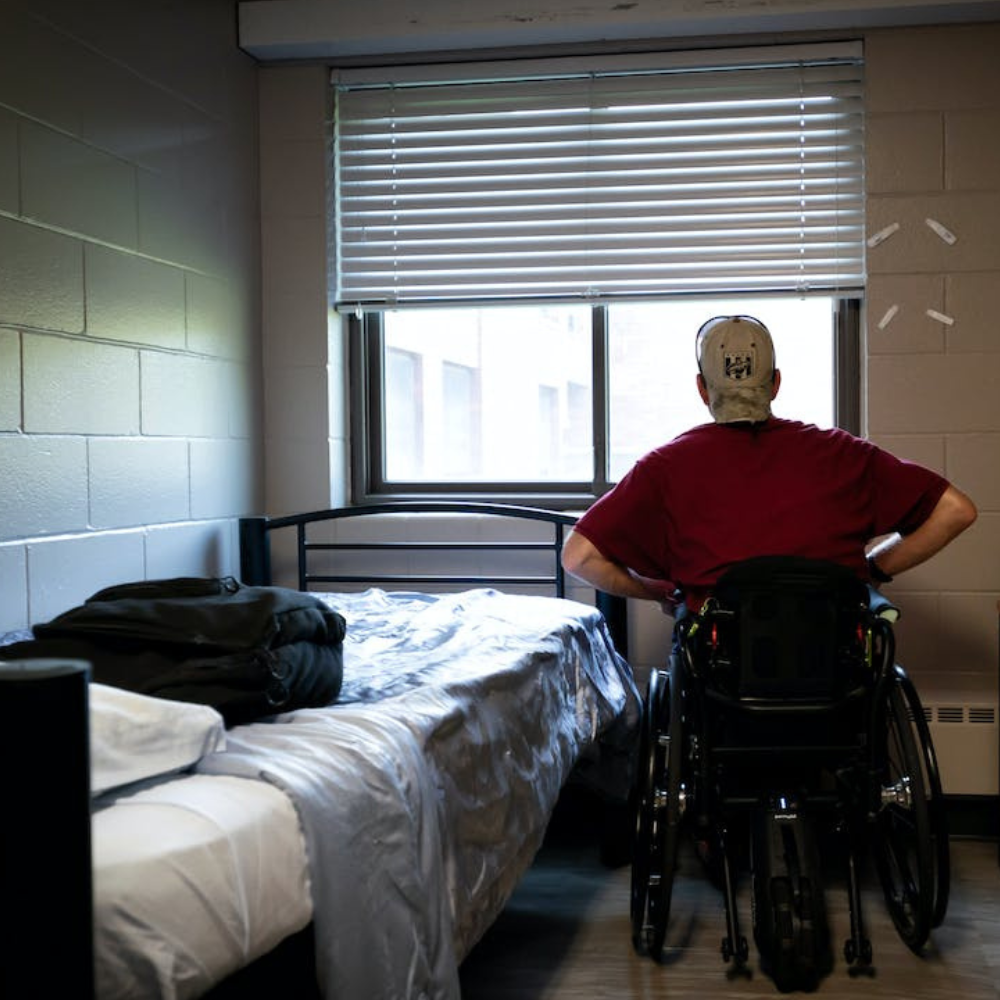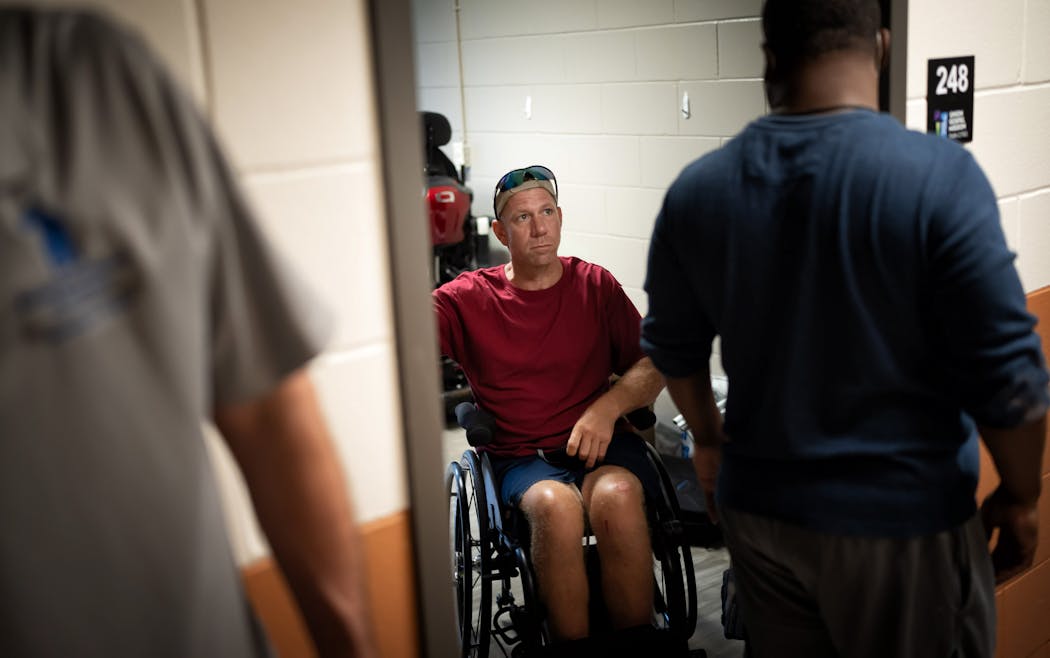Homeless veterans have a new home in St. Paul, thanks to affordable housing program

Brett Gipson moved Friday into the first place of his own in months, excited to have a private apartment with a window that framed the sunny greenery just outside.
The 45-year-old Marine Corps veteran, who was hospitalized for months after a domestic shooting that left him paralyzed, looked around the 300-square-foot apartment near downtown St. Paul, the only place he could find to go after leaving the VA Medical Center in Minneapolis.
“It was the only option I had,” the Illinois native said. “I’m excited now that I’m here.”
Gipson is the first resident in a newly expanded affordable housing program for homeless veterans launched by Union Gospel Mission Twin Cities and the Minnesota Assistance Council for Veterans (MACV), the only program of its kind in Ramsey County.
After piloting the program for two years, the two nonprofits made the housing program permanent this week, expanding it from nine to 15 apartments and adding transitional housing with more services.
“We’ve been able to connect [veterans] to much-needed services,” said Dave Sena, an Air Force veteran who oversees the program at Union Gospel. “Veterans who have given so much for our country … have a specific space for them with people that are really focused on their needs.”
In the last two years, the program has helped 19 men and is exploring adding a program for female veterans who are homeless.
“There was no place for them to go … besides staying in a shelter,” said Amanda Hooper, an Army veteran with MACV, which provides case managers for the veterans. “When you’re doing something that is veteran-specific, it really helps build community.”
With more than 300 homeless veterans registered with the Minnesota Department of Veterans Affairs, 70 of whom live in Ramsey County, Hooper said there is a high need for more affordable housing and services for veterans across the state.
“It’s a public health problem,” she said. “It’s really hard to keep your stability and your mental health and everything in check when you’re not able to have housing. The more housing we have available for veterans … the easier it is for those individuals to become stable.”
The veterans in the housing program pay about $300 a month to lease one of the dormlike apartments, which come with shared bathrooms and access to mental health counseling and other resources. The subsidized leases help them compile a rental history to apply for other apartments, and takes them off the state homeless registry.
On average, veterans stay about five months in the program, Sena said. It costs Union Gospel Mission about $90,000 a year to operate the program, excluding building and food costs.
Hooper said the program helps veterans obtain housing vouchers and other government benefits that can be critical resources in helping them eventually move into their own apartment or house.
“This program is really helping individuals who have a long history of homelessness,” Hooper said.
Sena said one veteran who lost his job lived out of his car for nearly 19 months, hopping from rest stop to rest stop until his car broke down. The man was referred to Union Gospel Mission by a police officer and soon had an apartment in the program and the resources he needed.
“It was a positive outcome for him,” Sena said. “Having that connection of a veteran talking to a veteran is huge.”
For Gipson, the first step to rebuilding his life after his lengthy hospital stays was getting a place of his own to stay. It happened Friday.
“I wanted freedom,” he said. “It’s a good feeling.”

